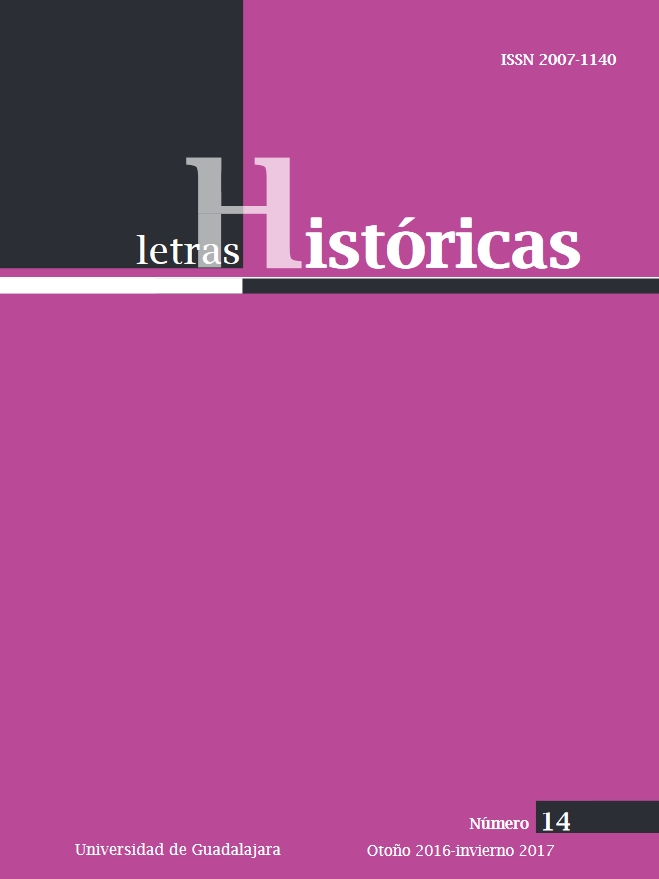Publicado
febrero 5, 2016
Palabras clave
- Obispado de Puebla,
- José María Luciano Becerra y Jiménez,
- Cabildo Catedral,
- relaciones Iglesia-Estado,
- gestión episcopal
Resumen
El artículo reconstruye y analiza la gestión episcopal de José María Luciano Becerra y Jiménez en Puebla (1853-1854). Ilustra la imbricación entre la dictadura de Antonio López de Santa Anna y la jerarquía eclesiástica a partir de una diócesis, para examinar los encuentros entre los poderes civil y religioso antes de la Reforma liberal. Argumenta que el apoyo del clero al régimen tenía los límites que le imponían su propia preeminencia en la sociedad y la defensa de los bienes eclesiásticos. Más allá de su apoyo al régimen político, el obispo quería afianzar su liderazgo y el de su clero en la sociedad poblana. Ecclesiastical hierarchy, pastoral project and political regime: José María Luciano Becerra, bishop of Puebla (1853-1854) This article reconstructs and analyzes the Episcopal government of José María Luciano Becerra y Jimenez in Puebla (1853 and 1854). It illuminates the close relation between the dictatorship of Antonio López de Santa Anna and illustrates the encounters between the civil and religious power in the years prior to Mexican’s Liberal Reform. It argues that the support of the clergy for Santa Anna’s regime was tempered by the emphasis on the Church as Mexican society’s moral guide and the defense of church property against the Mexican civil government. Beyond his support of the political regime, the bishop wanted to secure his leadership and that of his clergy in Pueblan society. DOI: http://dx.doi.org/10.31836/lh.14.4977















